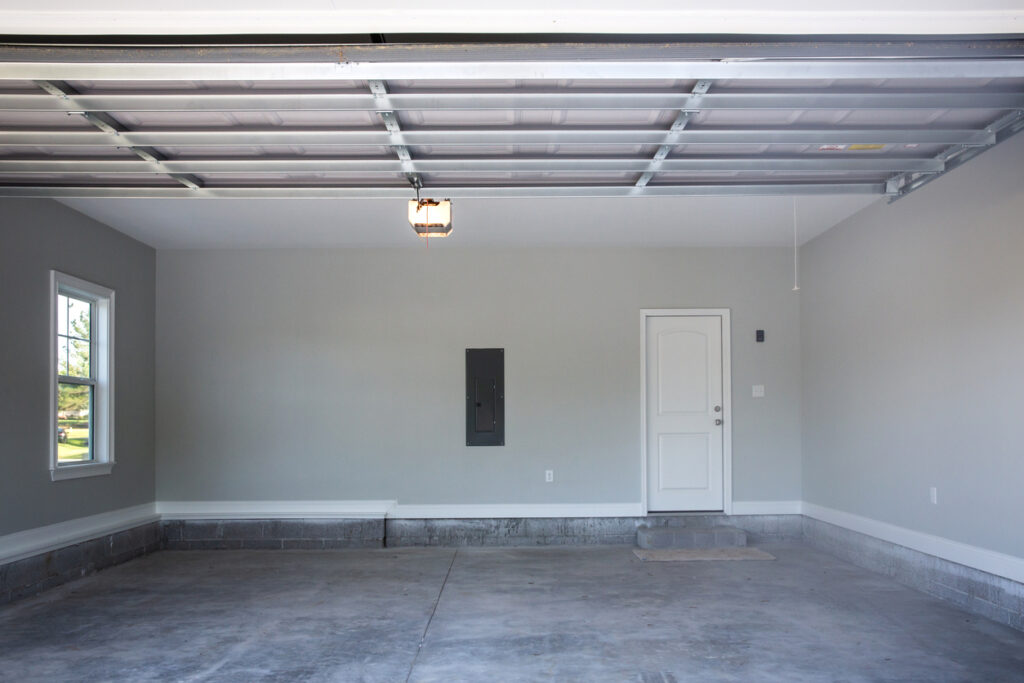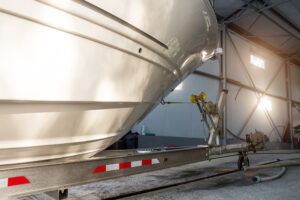 Have you ever walked into your garage and noticed a musty smell or found surfaces that were damp? These signs often indicate poor ventilation. For homeowners, ensuring proper garage ventilation isn’t just about comfort; it’s crucial for preventing moisture buildup, mold growth and health issues.
Have you ever walked into your garage and noticed a musty smell or found surfaces that were damp? These signs often indicate poor ventilation. For homeowners, ensuring proper garage ventilation isn’t just about comfort; it’s crucial for preventing moisture buildup, mold growth and health issues.
Understanding the Importance of Ventilation
Proper ventilation in your garage is more than just a luxury—it’s a necessity. Without it, moisture can accumulate, leading to various problems that can affect your home and health.
Garage spaces often become humid due to a lack of airflow, especially if they’re attached to the house. Storing damp items like wet sports gear or recently washed vehicles can make the problem worse. Not addressing these issues can result in damage to your personal items and your family’s health.
The Problem with Moisture
Moisture in the garage can stem from various sources, including weather conditions, daily activities and structural issues. When moisture isn’t appropriately managed, it creates an ideal environment for mold and mildew to thrive.
Water can seep in from the outside, especially during rainy seasons or snow melts. Even everyday activities such as parking a wet car or storing damp items contribute to the moisture levels in the garage. Over time, the persistent presence of moisture can compromise the structural integrity of the garage and the items stored within.
Health Risks of Mold
Mold poses significant health risks. Exposure to mold spores can lead to respiratory problems, allergic reactions and other health issues, making it crucial to keep your garage mold-free.
Mold releases spores into the air, which can be inhaled. Symptoms of mold exposure include coughing, sneezing, eye irritation and in severe cases, asthma attacks. For individuals with allergies or compromised immune systems, mold can be particularly harmful
Impact on Stored Items
Many homeowners use their garages to store valuable items like power tools, bicycles and seasonal decorations. However, these items are susceptible to damage when exposed to excessive moisture. Rust, corrosion and mold growth can render tools and equipment unusable, Maintaining a dry and ventilated garage is a must.
Structural Damage
Beyond the immediate health risks and damage to personal belongings, moisture can lead to long-term structural damage. When moisture seeps into the garage’s structural components, it can cause wood rot and compromise the stability of the building. Over time, this damage can lead to sagging ceilings, cracked walls, and even structural failure. Preventing moisture buildup through proper ventilation helps protect the integrity of your garage and home.
Types of Garage Ventilation
There are several ways to ventilate your garage, each with its own benefits. Choosing the right method depends on your garage’s design, location and your specific needs.
Natural Ventilation
Natural ventilation relies on passive airflow through windows, vents and other openings. This method is cost-effective but may not be sufficient for all garages, especially in areas with high humidity.
Mechanical Ventilation
Mechanical ventilation involves using fans and exhaust systems to actively move air in and out of the garage. This method is more effective than natural ventilation, particularly in garages with high moisture levels.
Hybrid Ventilation
Hybrid systems combine natural and mechanical ventilation to provide a balanced solution. These systems can be tailored to your garage’s specific needs, ensuring optimal airflow and moisture control.
DIY Ventilation Solutions
Homeowners can implement several do-it-yourself solutions to improve garage ventilation. Simple steps can make a significant difference in reducing moisture and preventing mold growth.
Installing Vents
Installing vents in strategic locations allows for better airflow and reduces moisture buildup. Roof vents, wall vents and soffit vents are all options to consider for improving ventilation.
Using Dehumidifiers
A dehumidifier can help control moisture levels, especially in humid climates. Regularly emptying and maintaining the dehumidifier ensures it operates effectively.
 Keeping the Garage Clean
Keeping the Garage Clean
Regular cleaning and maintenance help reduce moisture sources and prevent mold growth. Ensure that spills are promptly cleaned up and that damp items are not left in the garage for extended periods.
Installing Advanced Systems
Advanced mechanical systems, such as whole-house ventilation systems, can be integrated into your garage. These systems offer superior airflow and moisture control, protecting your home and health.
Regular Inspections
Regular inspections by professionals ensure that your ventilation system continues to operate effectively. Routine maintenance helps identify potential issues before they become significant problems.
Benefits of a Ventilated Garage
Investing in proper garage ventilation offers numerous benefits. From health improvements to protecting your belongings, the advantages are clear.
1. Improved Air Quality
Proper ventilation improves air quality by reducing mold spores and other pollutants. This leads to a healthier living environment for you and your family.
2. Protection of Belongings
Ventilation protects your stored items from moisture damage, extending their lifespan and saving you money in replacements.
3. Increased Home Value
A well-maintained, ventilated garage can increase your home’s value. Potential buyers are more likely to be interested in a home with a dry, mold-free garage.
Consult With The Experts at Coach House Garages
Hiring a professional, like the team at Coach House Garages, can provide peace of mind and ensure your garage is built properly with proper ventilation. Ready to take the next step? Call or schedule a garage consultation today!









